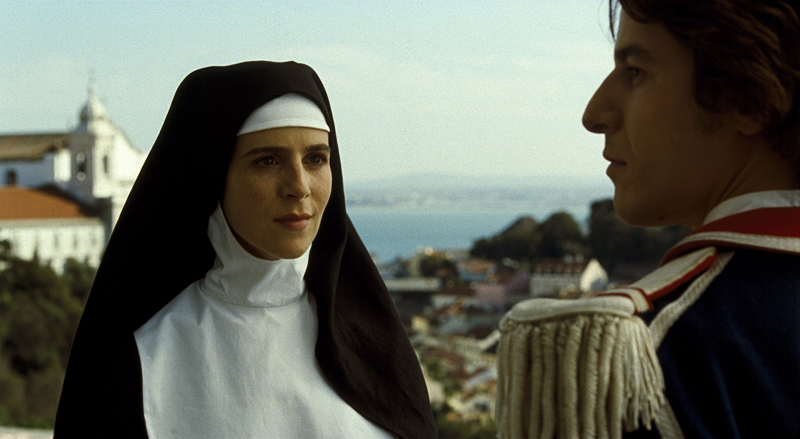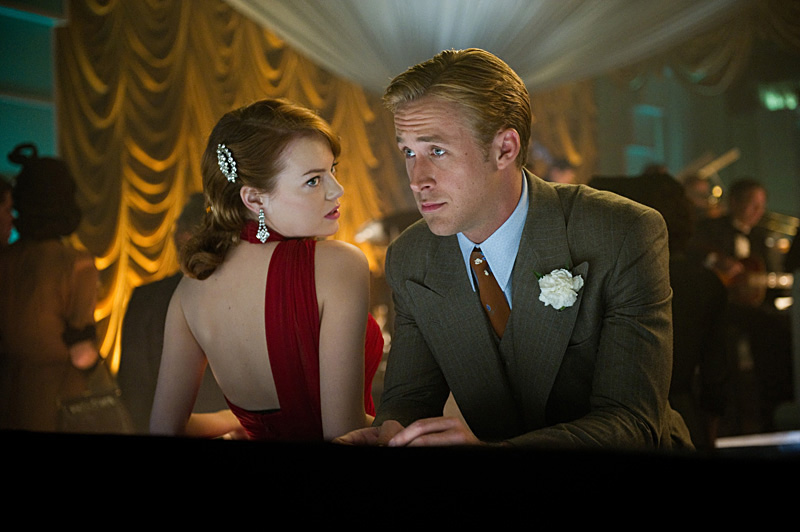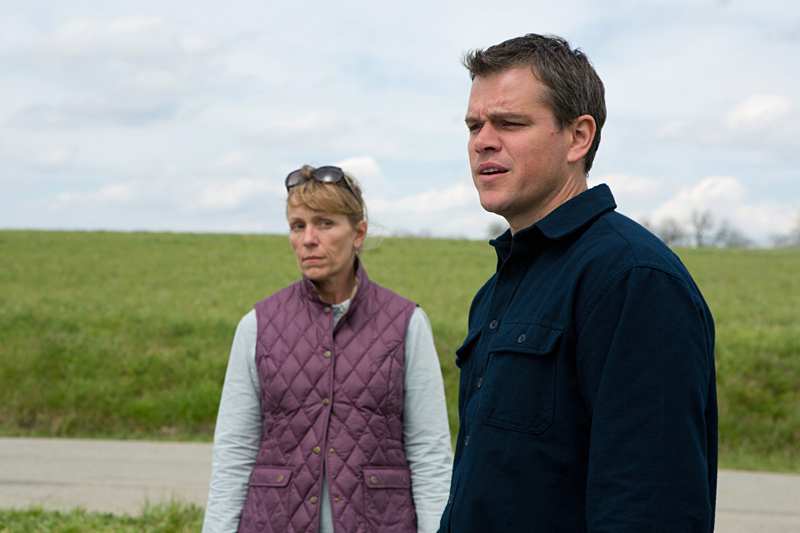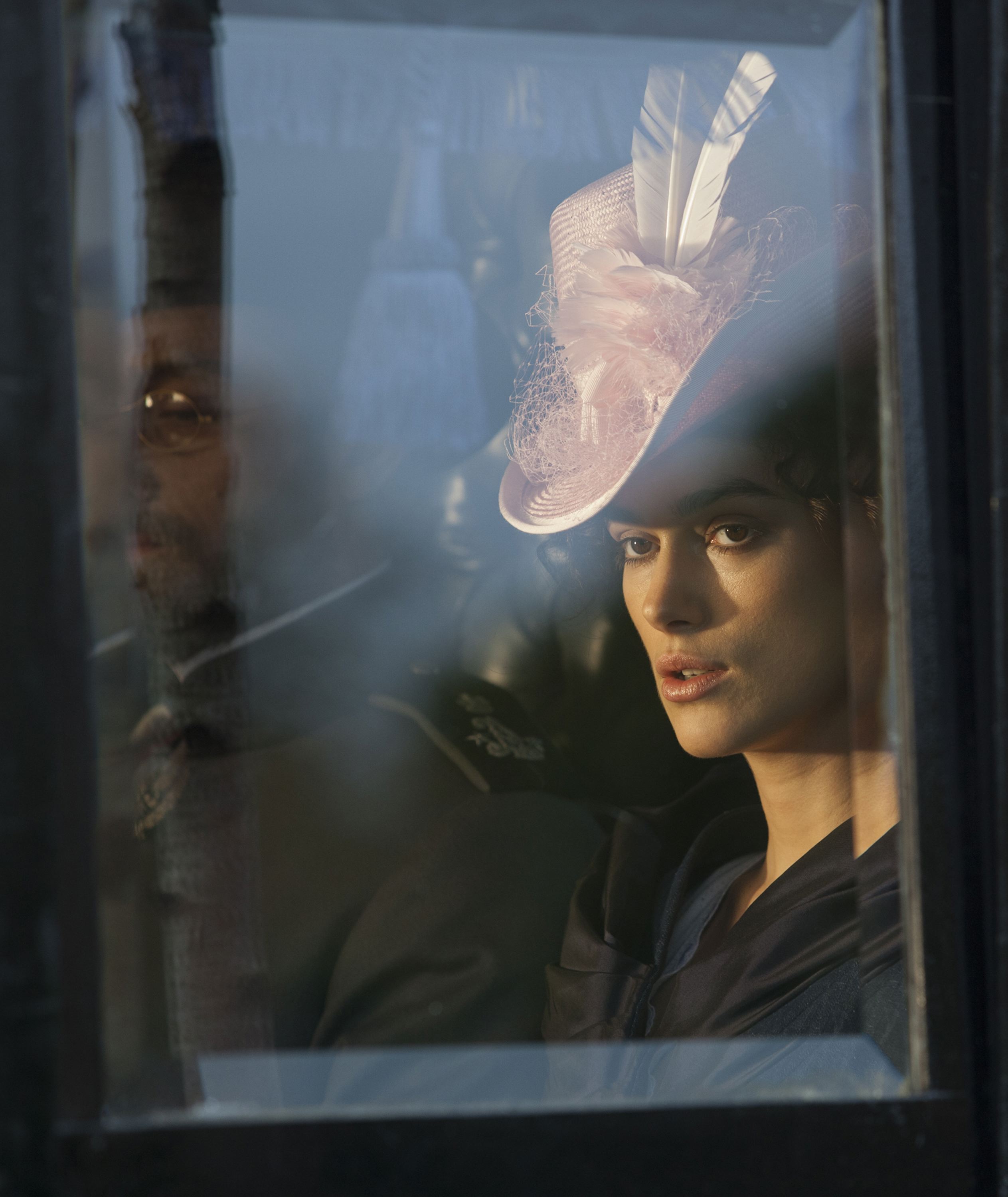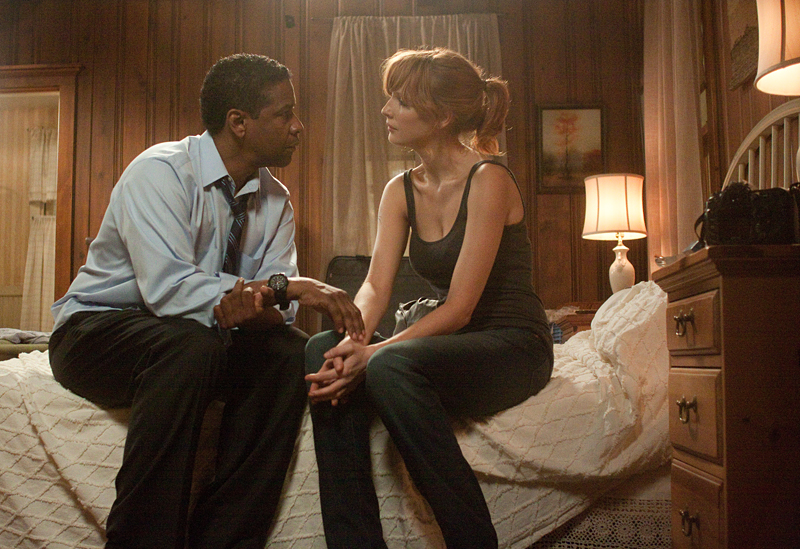A French actress, Julie (Leonor Baldaque), arrives in Lisbon to shoot a 17th-century costume drama. She’ll star in an arty adaptation of Les lettres Portugaises, a pathetic monologue addressed from a Portuguese nun to the French officer who seduced and abandoned her. The literary sensation of 1669, the letters are today identified as invented. They’re only briefly heard from in The Portuguese Nun, but the paradox of their counterfeit origins and emotional verity are very much in line with the film and its dialectics between loves profane and sacred, secular display and religious interiority, actress and nun. With much downtime from the set, Julie explores, walking through sloped streets and empty stairwells. An overture of limping fado, Portugal’s dolorous national folk music, sets the pace. Julie is lured into an obscure cantina, transfixed by a fadista and his band. She also takes in a show at the chapel near her hotel, where she returns night after night to watch a young nun (Ana Moreira) performing her steadfast vigil of prayer. The eventual exchange between these two actress/nuns is the film’s spiritual capstone. Director Eugene Green has explained his cinematographic project with winning immodesty: “I would like to re-enchant the world.” Here, re-enchantment comes in witnessing Julie’s discovery of self in the act of discovering an unfamiliar city. Green deals in universal emotions—but in a cinematic vocabulary alienating to most of his potential public. As playwright Jacques Audiberti said: “The most obscure poem is addressed to everybody.”
The Portuguese Nun: Enchantment in Lisbon
